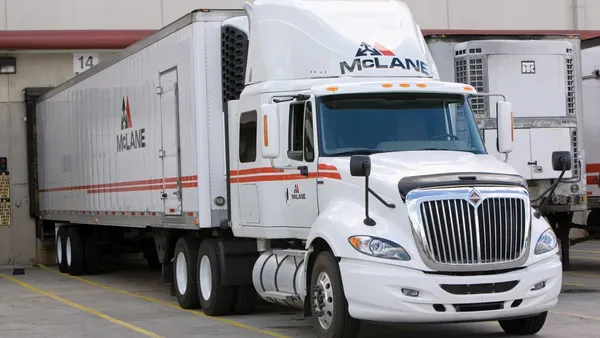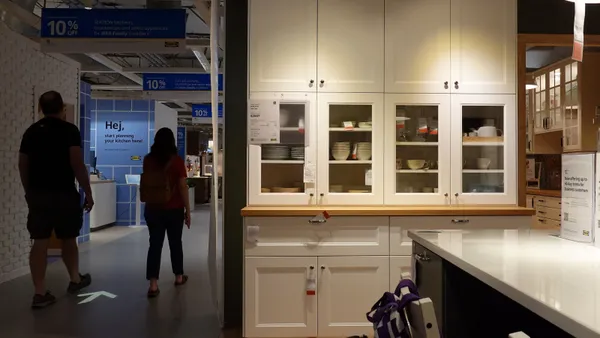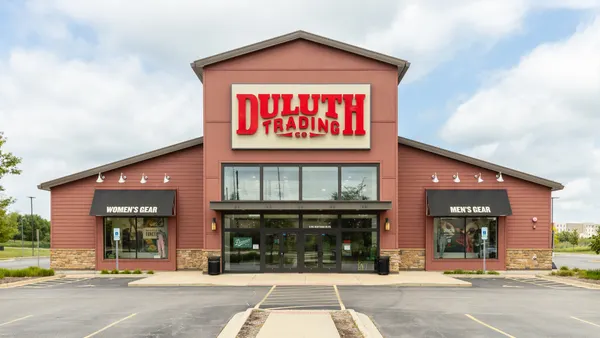KISSIMMEE, Fla. — To describe sneaker fans — or "sneakerheads" as they are sometimes called — as passionate would be an understatement. Athletic footwear has been the fastest growing footwear category for a couple years now, and some product launches rival a new iPhone in the frenzy they generate. As Dick Johnson, CEO of Foot Locker, told The Retail Industry Leaders Association's LINK2019 conference, whether customers want to "rock'em or stock'em," the supply chain needs to get them in the right place first.
Foot Locker has a long list of special stores and pop-up experiences, but fulfillment — whether to stores or to e-commerce customers — is where the rubber meets to road.
One popular strategy to quickly fulfill e-commerce orders is to use stores for fulfillment — that's the favorite tactic of Target. But Foot Locker has been closing stores in recent years in an effort to "prune the fleet of under-productive stores and open a few select high-profile stores," CFO Lauren Peters said last year.
Instead, Foot Locker is turning to "mini-hubs" — smaller warehouses near major population centers within a few hours of millions of customers.
It's a solution that is gaining popularity as consumer expectations for delivery times shrink. Home Depot, for example, opened its first of several "market delivery operations" last year to make deliveries of big and bulky items faster. The idea is, where real estate is more expensive, rent a smaller space and fill it with only what that region requires. Johnson said Foot Locker's first mini-hub is in Secaucus, New Jersey serving the New York metro area.
But herein lies the challenge: How do you plan your inventory to take best advantage of the proximity? Quick delivery is only helpful if the item is where it needs to be in the first place. And with some Foot Locker items produced in intentionally limited quantity, the task of localization becomes even tougher.
"When I figure that out I’ll come back and tell you," joked Johnson. "We’re in that process right now."
Johnson explained that though Foot Locker isn't yet able to predict the needs of individual stores very precisely, it is able to stock the mini-hubs with regional specificity of inventory.
Mini-hubs allow the company to make what Johnson called "milk runs" — daily or even twice-a-day deliveries to stores to replenish stock. He said the company is working toward a more automated process as right now "there's too much manual intervention in that process."
In the meantime, "progress over perfection" is the mindset Johnson described. "We’ll get it better every single day, but I don’t know if we’ll have it perfect."
This story was first published in our weekly newsletter, Supply Chain Dive: Operations. Sign up here.












